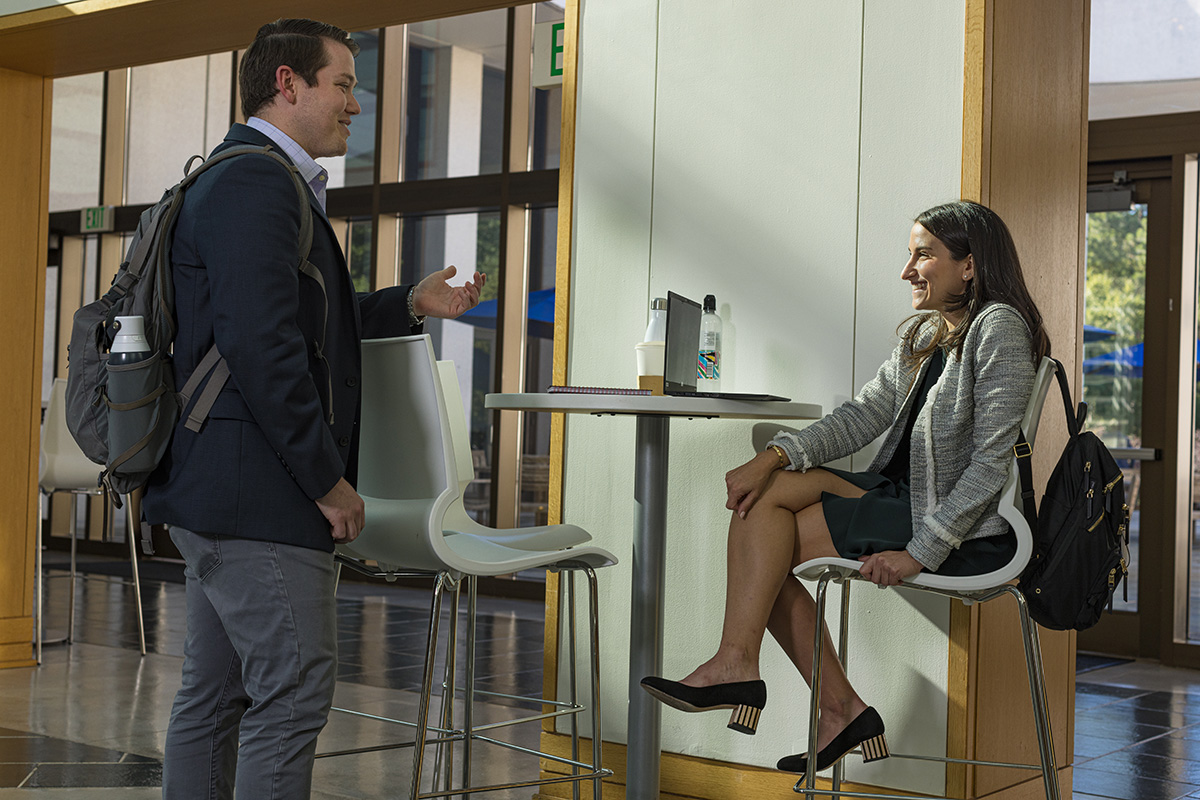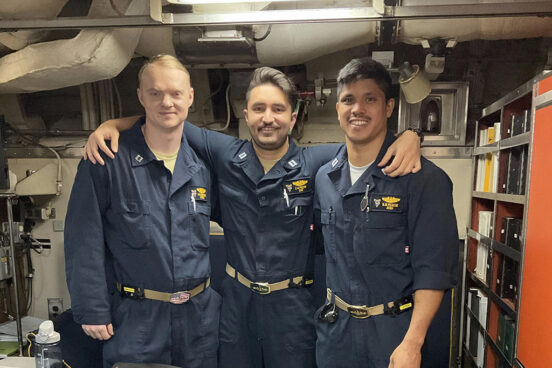Duke Daytime MBA Student Blog

Recruiting at Fuqua: An Inside Look at the First Year and Internships
As a 12-year veteran of Fuqua’s Career Management Center and a Daytime MBA alumnus myself, I take great pride in how we support our students’ career searches. Throughout the program, we help students navigate recruiting while also preparing them for the career journey they’ll experience years after graduation.

As a 12-year veteran of Fuqua’s Career Management Center (CMC) and a Daytime MBA alumnus myself, I take great pride in how we support our students’ career searches. Throughout the program, we help students navigate recruiting while also preparing them for the career journey they’ll experience years after graduation. While keeping in mind that not everyone’s path is the same, here’s what recruiting at Fuqua typically looks like for a first-year MBA candidate.
Recruiting Preparation Before Orientation
In recent years, firms have been competing to get in front of our MBA talent earlier and earlier. Now, once MBA candidates have been admitted, we start engaging with them. The Admitted Student Website has resources that provide guidance, including a checklist of things students can do before they arrive on campus. For example, we recommend students read up on their primary industries of interest and begin to think about updating their resumes.
Once the Program Begins
The CMC begins teaching career classes during the summer term, right after orientation. During these early sessions, we guide students through a process of introspection. What has caused them to excel in their past roles? What are their particular strengths?
A few weeks later when second-year students return for Fall Term 1, things kick into another gear as we try to help first-year students gain as much exposure to potential career paths as possible. September calendars are filled with coffee chats, where first-year students connect with second-year students who have just interned with an employer or industry in which they’re interested. First-year students are also supported by a second-year career fellow who has been trained to guide a cohort of four or five first-year students through the MBA recruiting process. The second-year students share their recruiting, internship, and industry insights during these informal meetings. And the knowledge transfer often goes both ways, with second-year students learning from members of the first-year cohort who have just come from a company or role in which they might be interested.
Our symposium series also kicks off, which includes alumni panels where even more insights are shared with students. By this time, the goal is for students to have had enough exposure to potential career paths that they’ve begun to form their own opinions about what they like and don’t so they can narrow their focus.
First Contact with Recruiters
Before company recruiters begin to descend upon campus, CMC programming educates students on “the hunt.” How do you identify your best and most desirable opportunities and how do you then do it? We help them master their pitch, interview strategy, and how to convert new connections into personal advocates.
Company presentations are one of the first ways recruiters get in front of new students. Insights about companies’ opportunities, culture, and specific roles are gleaned and initial connections are made with recruiters, many of whom will be the ones interviewing first-year students for internships later in the recruiting cycle.
When Do Interviews for Internships Begin?
In some cases, interviews start as early as the fall or even earlier in late summer. For students who know exactly what they want to do, that timing works. However, the majority of interviews occur in January and February, driven largely by the consulting and banking industries.
By the time students start to conduct interviews in the new calendar year, they’ve already completed their core coursework. Our 6-week terms help students absorb more learning and concepts in a shorter time period and having this foundational knowledge of core business principles can help them going into interviews.
Because much of our CMC guidance can be applied across different industries and roles, students can customize it to fit their own career search. We also prepare students for what happens if they don’t land the role they really wanted. How do they pivot toward a new target and go after it? We feel students’ pain when things don’t work out and celebrate all their wins along the way. And when those offers do start coming in, we’ve already coached students on how to choose between multiple ones and negotiate the best package.
Once an offer is accepted, the CMC works with students to make sure they make the most of their internship. We provide guidance on how to be successful and intentional in the role so students get what they want out of the opportunity. Is a person’s primary goal to get a full-time offer at the end? About half of our students return to that same employer upon graduation. Or is someone focusing on developing specific skills and building experience in a new area? Internships can be a great way to test an assumption on what a student wants to do with their career long term.
It’s Time to Intern
All this hard work recruiting at Fuqua during the first year culminates in a summer internship. For more details on what kind of internships our students are getting, how they’re finding those opportunities, and what those compensation packages look like, check out our most recent employment reports.
And for a behind-the-scenes look at some of our students’ internships, check out these videos:



